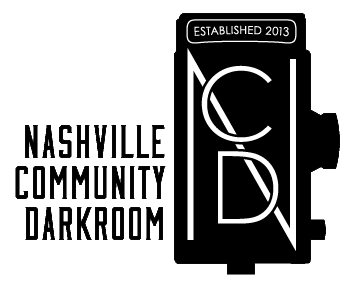Partnering with local schools to keep students engaged in arts education.
Over the last 15 years, K-12 education has seen a narrowing of the curriculum, as schools have focused in on core subjects such as English/Language Arts and Math. As many have noted, however, the increased focus on core subjects has come at a price: major cuts in time and money devoted to the arts.
Why are the arts important? The Secretary of Education (and President Kennedy) described it this way:
In 1963, shortly before he was assassinated, President Kennedy spoke about the importance of poetry at the groundbreaking for the Robert Frost Library at Amherst College where Frost had taught. And here is what Kennedy said: “Our national strength matters,” he declared, “but the spirit which informs and controls our strength matters just as much.”
Robert Frost’s poetry, in Kennedy’s eyes, reminded us of the limitations of power. Power might lead man toward arrogance, but “poetry reminds him of his limitations.” When power narrows the areas of man’s concern, Kennedy said, “poetry reminds him of the richness and diversity of existence. When power corrupts, poetry cleanses.”
It was art, Kennedy concluded, that “establishes the basic human truths which must serve as the touchstone of our judgment.”
The arts can do even more than kindle thought and illuminate the purpose of our lives, however.
The NCD addresses key problems: student achievement and motivation, cuts to arts education, and a decrease in hands-on learning.
The Nashville Community Darkroom was conceived as a way to address three key problems in the K-12 educational landscape today:
Student achievement, motivation, and engagement challenges, especially in high-need schools
Major cutbacks in arts programs
A decrease in hands-on learning
Taught well, the arts cut across curriculum, including science, mathematics, language arts, and more. This is especially the case with photography, which encompasses both traditional “artistic” elements (such as composition), as well as science (optics, reflection, refraction, etc.), math (photographic composition, the “rule of thirds,” geometry and trigonometry), and — of course — language arts (personal expression, photojournalism, symbolism, imagery, criticism).
Good arts programs have a positive impact on student achievement in core subjects.
Several studies have demonstrated that a strong, cross-curricular emphasis on the arts actually contributes to students’ achievement in core subjects. Nashville, in particular, has already embraced such research with, among other things, its nationally-renowned “Music Makes Us” program. A recent study of the program provided strong evidence of the many benefits of a vibrant arts curriculum. This research-based study found that students who participated in the music program “outperformed their non-music peers on every indicator,” including ACT score, GPA, attendance rates, graduation rates, and disciplinary referrals:
As the data illustrate, music students outperformed their non-music peers on every indicator. All of the differences are statistically significant (p < .01)—even those between the two groups of music students. This means that any level of music participation is associated with higher engagement and achievement, and that more music participation associates with even better outcomes.
The Nashville Community Darkroom is doing its part.
We know that engaged, motivated students do better in school. Especially in high-needs schools, photography can be a hook to engage students in school, and — connected to curriculum — can provide an avenue to better learning in core subjects. It can also be a bridge to college and career.
We’ve got the people. Our founder, John Haubenreich, is a former high school teacher, and has experience writing and publishing curriculum. The NCD is also powered by other teachers and professors such as Heather Lose (Watkins College Of Art, Design & Film) and Michelle Wise (Tennessee State University). Together, our people are preparing a cross-curricular arts program that will include projects in English/Language Arts, Math, and Science classes, tailored to the high school, middle school, and elementary school levels.
The NCD will be much more than an after-school club. Modeled in part on the “Street Law” program, which introduces students to legal concepts via outside volunteers, the NCD sends volunteers into classrooms to work directly with students, as well as working behind the scenes with teachers to integrate photography concepts into the teacher’s curriculum. In this way, photography is integrated into core subjects.
Hands-on work. But that’s not all — the Nashville Community Darkroom designed its facility to accommodate large classes, who will come to the space to do hands-on work in the darkroom, learning about and developing their own film and prints.
A finished product. Students will work with NCD volunteers and their teachers to develop a portfolio of work to be used at school and exhibited in the NCD gallery, as well as local businesses around Nashville.
College and career preparation. Students’ NCD portfolios can be part of a college application, can be used to enter arts-related community college programs, or may even be the beginning of a career in photography, such as an event photographer, free-lance photojournalist, or other endeavors.
BONUS: The arts are good for our economy. As discussed by Robert Lynch, a Georgia Tech study found that “just the nonprofit arts industry — the museums and performing arts centers, among others —generates $134 billion in economic activity every year . . . . The $134 billion nationally supports 4.85 million fulltime-equivalent jobs and $89.4 billion in household income.” An investigation into the economic impact of the arts in Chattanooga, TN by Americans for the Arts found over $100 million in arts and education spending by both arts organizations and their patrons in 2010.


